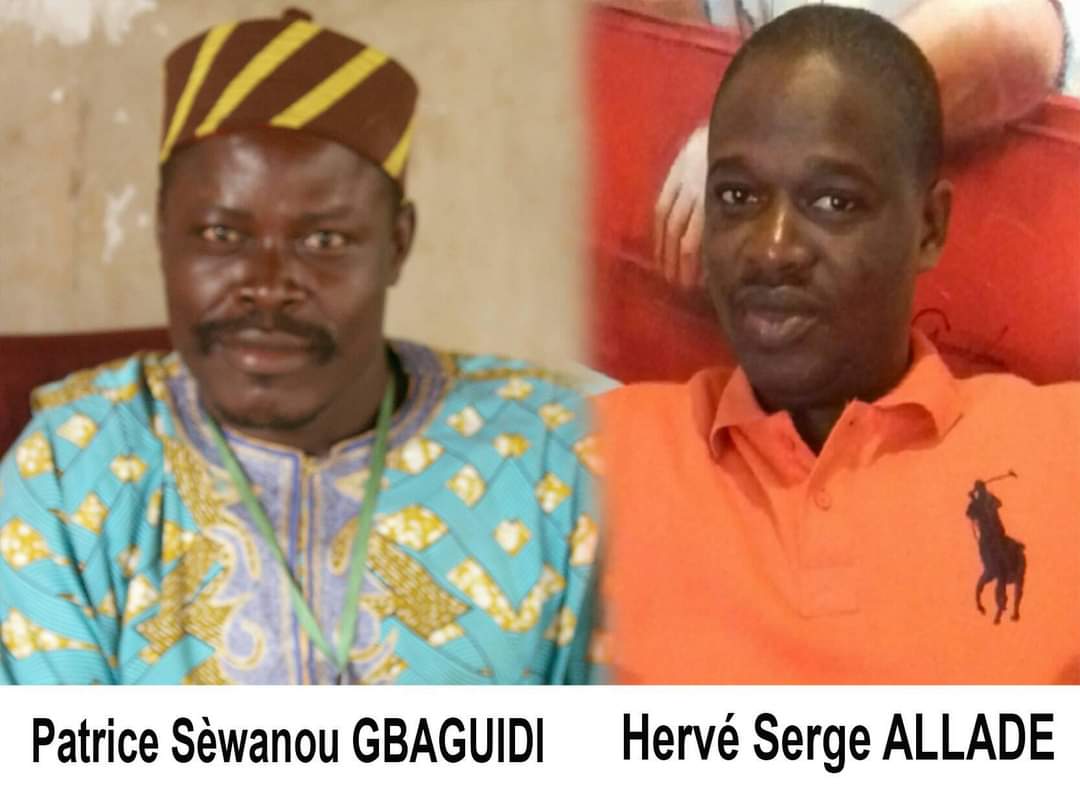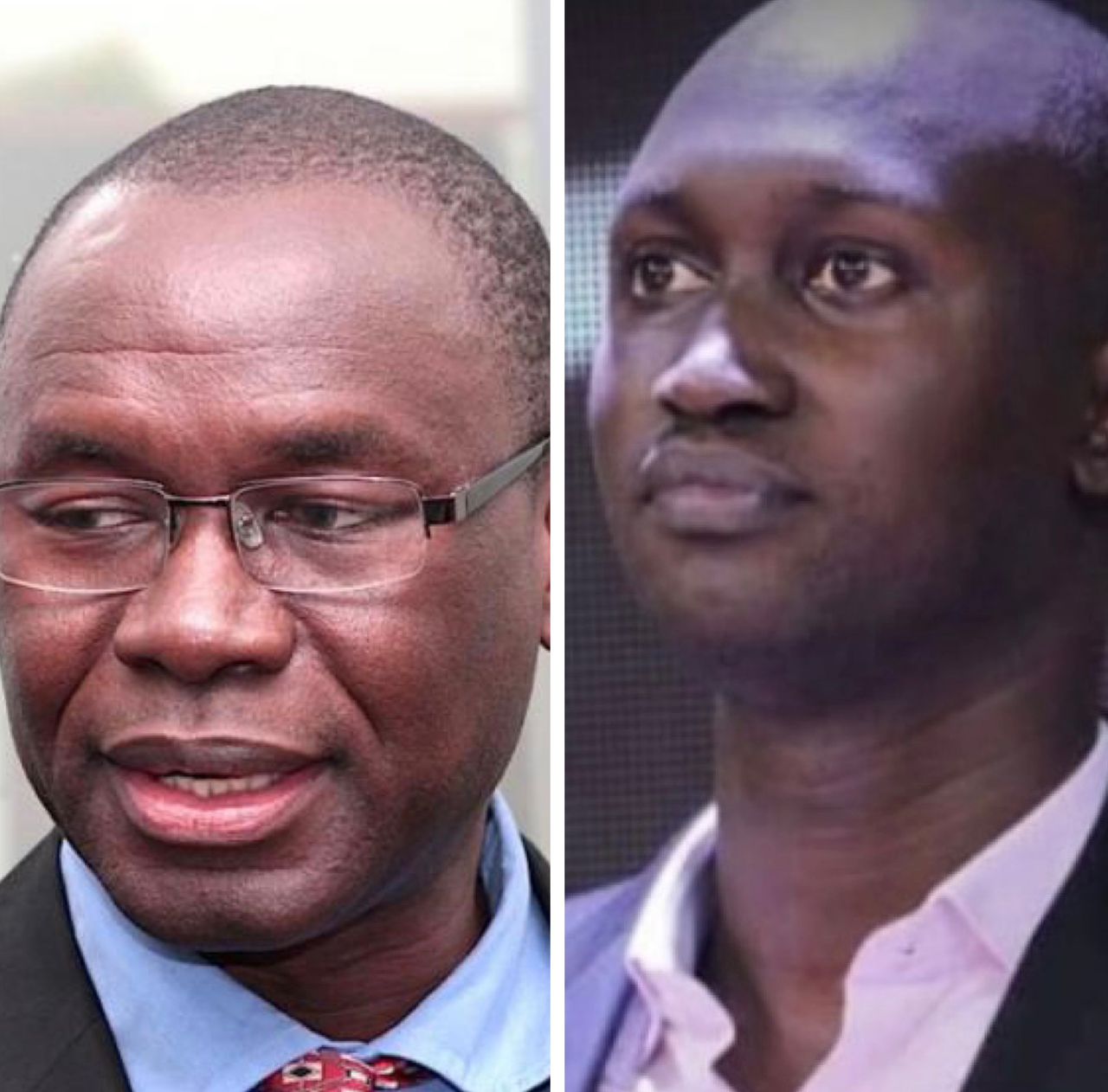The Media Foundation for West Africa (MFWA) welcomes the release of Beninese journalist Patrice Gbaguidi and Hervé Alladé, owner of the media outlet Le Soleil Bénin Info, who have been in pre-trial detention since 18 November 2021. The MFWA calls for the cancellation of all charges against the accused who were sentenced on Tuesday, 7 December 2021, to six months’ suspended imprisonment and a fine of 500,000 CFA francs.
In a case that shows the imponderable threat posed by Benin’s new digital code, journalists Patrice Gbaguidi and Hervé Alladé, who is also the owner of the media outlet, have been thrown into prison over a story they published on August 25, 2021, about Colonel Marcellin Laourou, head of Benin’s Customs service. They are charged with “harassment through electronic communication,” an increasingly familiar accusation the authorities level against critical publications online.
Authored by Mr Gbaguidi, the said article, reported on a private land dispute between Colonel Laourou and a woman and accused the former of “Illegal occupation of an access road to Godomey Togoudo”.
The two were summoned and interrogated by the Central Office for the Repression of Cybercrime (OCRC), following a defamation complaint by Colonel Laourou over the article. A week later, on November 18, 2021, the two were thrown into detention after appearing before the public prosecutor.
A few hours before the interrogation, Patrice Gbaguidi had posted an alert on his Facebook account about the summon.
“Following to my article published in the newspaper LE SOLEIL BÉNIN INFO on the 25th of August 2021, the customs officer Marcellin Laourou, judging it defamatory, has filed a complaint to the Central Office for the Repression of Cybercrime. In this regard, after my interrogation last week, I am summoned this Thursday, November 18, 2021, at 8:00 a.m. sharp,” the journalist wrote.
Under Article 550 paragraph 1 of Law No. 2017-20 on the new digital code of Benin adopted in 2018, the two defendants accused in this case of harassment through electronic communication could be sentenced from one month to two years imprisonment and a fine from five hundred thousand (500,000) to ten million (10,000,000) CFA francs.
The long-awaited trial, which was initially scheduled for Tuesday 30 November 2021, finally took place on Tuesday 7 December 2021 at the Court of Cotonou. The journalist Patrice Gbaguidi and Hervé Alladé, the owner of the media, who were prosecuted for harassment through electronic communication, have finally been sentenced to 6 months suspended prison and a fine of 500,000 FCFA.
Despite the decriminalisation of press offences, the media in Benin has for some years now been confronted with the new digital code, which, like a sword of Damocles, has created a climate of terror and self-censorship, and a fertile environment for the imprisonment and muzzling of journalists under the guise of fighting cyber-crime.
According to some critics, Benin’s decline from 78th to 114th in the Reporters Without Borders press freedom index is due to the use of the digital code to harass critical journalists and activists. At least 17 journalists, bloggers and online activists, including Ignace Sossou, Casimir Kpedjo have been arrested and prosecuted over the past three years on the basis of the above-mentioned article.
In a statement, l’Union des Professionnels des Médias du Bénin – UPMB (Union of Media Professionals of Benin) said the first decision to imprison Patrice Gbaguidi and Hervé Alladé “once again undermines the provisions of the Information and Communication Code, which prohibits the use of custodial sentences against media professionals in the exercise of their profession, and reminds us of the need to step up efforts to review the Digital Code as soon as possible.”
The Media Foundation for West Africa (MFWA) welcomes the release of Patrice Gbaguidi and Hervé Alladé, both of Le Soleil Benin Info media, although they should not have been imprisoned in the first place. The MFWA therefore strongly denounces their conviction as a clear attempt to silence and intimidate critical and dissenting voices. Such actions are likely to push the latter into self-censorship.
We call on the Beninese authorities to put an end to the all-out intimidation and imprisonment of journalists on the basis of frivolous prosecutions, under the repressive provisions of the new digital code. This situation jeopardises the work of the media, undermines freedom of expression and the press and tarnishes the image of the Republic of Benin.
The MFWA expresses its solidarity with the two journalists and its support for the call by media actors and partners in Benin to put an end to the application of the digital code to press offences, especially when defamation is explicitly decriminalised in the press code.






